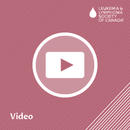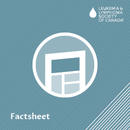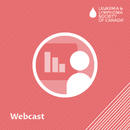Resource Library
Showing 31 to 40 of 64 results
Your treatment plan for DLBCL will be based on your age and overall health, potential long-term side effects, your stage (where the disease is located in you), symptoms, and fertility if applicable. Types of treatment for DLBCL include traditional chemotherapies, targeted therapies, stem cell transplant, radiation, and immunotherapies.
Gary Su, of Calgary, was diagnosed with acute myeloid leukemia (AML) in his 30s and underwent a stem cell transplant with his sister as donor. He says the Leukemia and Lymphoma Society of Canada became his guiding light, offering a wealth of reliable information and connecting him with a supportive community.
Maintenance therapy is treatment given after the first (primary) therapy used to manage your cancer, or lower your risk of the cancer coming back. Some people may use maintenance therapy for a long time. This type of therapy can include drugs, vaccines, antibodies, or hormones.
Maintenance therapy can be used after a stem cell transplant for a blood…
Maintenance therapy can be used after a stem cell transplant for a blood…
In this 1-hour presentation, Dr. Abi.Vijenthira, hematologist at Princess Margaret Cancer Centre in Toronto, provided an overview of the approach to non-Hodgkin lymphomas, and provided updates on recent developments in the management of these lymphomas.
In this 1-hour presentation, Dr. Mary-Margaret Keating, hematologist at the QEII Health Sciences Centre in Halifax, NS, provided an overview of the approach to Hodgkin lymphoma and updates on recent developments in the management of this lymphoma.
Blood cancer isn’t always a one-time event. Some blood cancers , known as “chronic,” can be closely monitored and treated but will not completely go away. How do persons affected by a chronic blood cancer adapt to this reality? LLSC Community Services Leads Desiree Naylor and Natasha Sani address ways to manage living with a chronic blood cancer.
As a result of cancer and its treatment,people touched by a blood cancer can experience some degree of fatigue and brain fog. In this presentation, Kendra Woloshyn, RN, Cross Cancer Institute, Edmonton, will talk about the two big F words in cancer care along with how to manage fatigue in day-to-day life and self-management techniques to improve brain fog.
People affected by a blood cancer are frequently immunosuppressed and at risk for a wide range of infections, due to treatments. Lots of things can be done to reduce risk of infection. Summer Pham, RN, focuses on ways to prevent infections and stay healthy during blood cancer treatment.
In this webcast, nurse and psychotherapist Bonney Elliott addresses the psychosocial impacts of living with a chronic blood cancer on quality of life, stress, and social and family relationships.
Learn ways to live better with a chronic cancer.


